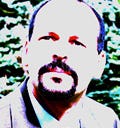What Will Trump Do Next?
To assume that Trump, and Trump alone, to the exclusion of all other politicians, has authoritarian tendencies is as naïve as believing that a progressive president will pursue a human rights centered agenda to the exclusion of all that stand against that agenda. All politicians, once they experience the power that comes with the executive office, are prone to be or to becoming authoritarians. The need for term-limits, separation of branches of government, freedom of the press, freedom of expressions, rule of law, and safeguards against government overreach and abuse of power is premised on that universal politicians’ instinct to amass unlimited power. The difference between Mr. Trump and his ilk and other less authoritarian politicians is the former are not convinced that authoritarianism is without merits so they embrace it openly. To them, the utility of authoritarianism is in making a nation great (again, or otherwise) outweighs its liabilities. While liberal politicians seem to recognize the limits of amassing power, Mr. Trump, recognizes no limits. His recent meeting with the New York Time revealed as much. To predict what he might do to achieve his goals, consider the steps already taken by one of the most successful authoritarians of the 21st century: Recep Tayyip Erdoğan.
No other presiding politician represents Mr. Trump’s instincts, dispositions, temperament, and strategic thinking the way Mr. Erdoğan does. With President Erdoğan already in his last stage of achieving a virtual monopoly on power in his country, understanding Mr. Trump requires no hindsight advantage, only studying the steps taken by Mr. Erdoğan. Mr. Trump is more likely to follow the same steps to weaken all the social and institutional forces that stand in his way not because Mr. Erdoğan is successful but because he followed the playbook to becoming a successful authoritarian. Mr. Trump, however, will not succeed for one simple reason: civil society institutions in the United States are stronger than their counterparts in Turkey. But that will not stop Mr. Trump from trying.
He took his first step on Tuesday when he met with the New York Times reporters, editors, and publisher. Mr. Trump knows that he needs to either succeed in normalizing his offensive and abusive campaign rhetoric or abandon it. In both cases, he needs the help of the likes of the leader of the so-called mainstream media, the New York Times. Underscoring his intention to threaten, coopt, or cajole his adversaries, he agreed to meet The Times’ staff on the condition that the entire meeting be held off the record. When The Times refused his condition, he unilaterally cancelled the meeting via a tweet. Eventually, he attended the meeting. He started and ended the meeting by stating his need to have The Times in his corner and he hinted at his range of options for achieving that goal. For his opening statement, he declared, “look, I have great respect for The Times, and I’d like to turn it around. I think it would make the job I am doing much easier.” On his way out, he threw them a carrot: “I will say, The Times is, it’s a great, great American jewel. A world jewel.” These are the most telling statements of the entire interview. They reveal his desires and his methods: work with me and you will be showered with compliments and granted exclusive access; otherwise…
The kind of relationship he will have with the media and what kind of society we will have in the next four years and beyond will depend on more than one meeting with one media outlet and nice departing words. It will depend on how free will the press will be during his administration’s reign.
Erdoğan, too, employed the same strategy with the media. He coopted many, he shut down many, and he seized some. By the time he was ready to tackle his last foe, the military, hundreds of journalists were imprisoned and many have fled the country. He is now presiding over a country without an actual independent press, and the few media outlets not directly controlled by his government or the allies of his government are operating under the strictest regime of regulations in the history of the Turkish Republic. With the press and the military under his direct control, he is now going after professors, teachers, lawyers, and professional associations.
The road to authoritarianism can be made impassable by a wall consisting of strong civil society institutions. The bedrock of civil society institutions is one often referred to as the fourth branch of government: The Press. The health of representative governance is directly proportional to the health of the civil society institutions and the wall they form. Today, President-Elect Trump threw the first stone to test the health, readiness and resilience of the Press. Tomorrow, and in the next weeks and months, he will try to dismantle that protective wall institution by institution so that he can build his own walls of social control and containment. Many people fear government overreach and abuse of power when he takes over. The only way to make sure a government does not abuse its power is to invest in strengthening civil society institutions, not in replacing one openly authoritarian by one in disguise because all who seek power want more of it.
